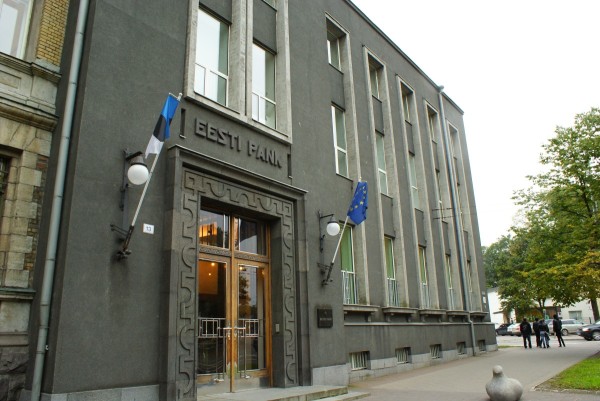
"Three Kings' Day" in Firenze and Eesti Estonian Life
Eestlased Eestis | 19 Jan 2020 | EL (Estonian Life)Eesti Elu
"Three Kings' Day" in Firenze and Eesti
Layers of time colliding – the 3 hommiku/maa targad, biblical Magi or Wise Men / Kings from the East arrived in what Estonians, like Italians call Firenze (Florence) on January 6th last week. Dressed in Renaissance era clothing, as when the “Cavalcata dei Magi” (Cavalcade or Procession of the Magi) tradition began here in 1417, lords and ladies, falconers and others, led by drummers, the gift bearers (seen here) and the three kings on horseback, now pass by designer shops such as Chanel and Fossil. The procession ends in the Piazza del Duomo where a live Tarkade kummardamine (Adoration of the Magi) plays out in front of the theatrical nativity scene. Photo: Anu Hint
Epiphany, a Christian feast day on January 6, known in Estonia as kolme/kuninga/päev (Three Kings' Day), commemorates the 12th day of Christmas when the three Wise Men arrived at the manger bearing gifts of kuld (gold), viiruk (frankincense) and mürr (myrrh) for Baby Jesus. The New Testament does not give the names of the Magi, however in the Western Christian church, they have all been regarded as saints and are commonly known as Caspar, Melchior and Balthazar.
The day is a national holiday in many countries worldwide, including our neighbors Finland, Sweden, Poland and Germany, and of course Itaalia, where a witch-like woman La Befana (an Italian tradition from Christian legend since the 13th century), also plays a part for the kiddies. In almost all Spanish cities, the Cabalgata de Reyes Magos is a traditional parade with floats carrying the Wise Men. Among Irish and Amish kristlased, this day is also known as Little Christmas or Old Christmas.
In Estonia, people regard kolmekuningapäev as the final day of the Christmas period, unless of course you are of Eastern Orthodox faith (õige/usklik). Then the next day would be your Christmas Day. For Lutherans, the holidays began with tidying up on tooma/päev, 21. detsembril and bringing in the tree, usually only a day or two before Christmas Eve maximum! A lot of families actually still bring the tree in and decorate it on jõulu/laupäev (Christmas Eve), that way you really don't want to send it off until after the Wise Men have reached their sweet destination. (The singular of Magi is Magus – which means sweet in Estonian.)
The word Magi tends to trick the Estonian eye into thinking mägi, which means mountain or hill in the context of local Estonian geograafia, as in Suur Muna/mägi, Estonia's highest at 317,4 m üle mere/pinna (above sea level). Mägi is also a very common Estonian surname. Magi in the context of the Wise Men comes from the Greek word "mágos", which is where the English word magic comes from. Magos in turn comes from the old Persian "Magupati", a title given to priests in a sect of the ancient Persian religions such as Zoroastrianism. Today we might call them astroloogid (astrologers) or tähe/targad, having "star smarts".
Although not very religious, Estonians do adhere to many traditions set in place by the church. Most people don't take out their tree until after Epiphany. And it's common knowledge that just as you shouldn't wish anyone a Happy New Year until 12 midnight on the 31st (before that you only wish HEAD VANA-AASTA LÕPPU, (Happy End of the Old Year), you only have until this day, 6. jaanuar to wish them a Happy New Year. If you forget and wish someone Happy New Year AFTER that day, you have to give them a gift, "pead pudeli tegema" (a bottle of booze or why not a smoked ham). Perhaps in this day and age, taking them out for a kohv or bowl of vegan supp will suffice. HEAD UUE AASTA JÄTKU! Happy continued new!
Riina Kindlam
Kolm kuningat saabuvad Jeesuslast kummardama ratsa. The three Kings (Caspar, Melchior and Balthasar) arrive on horseback to adore the baby Jesus. Firenze is also home to the world's most cherished paintings of the scene Tarkade kummardamine (Adoration of the Magi). Although not widely celebrated in Estonia, the general public knows the date, meaning and "täht/ajad", traditional time frames set by kolme/kuninga/päev. Photo: Anu Hint
Eestlased Eestis
TRENDING
























